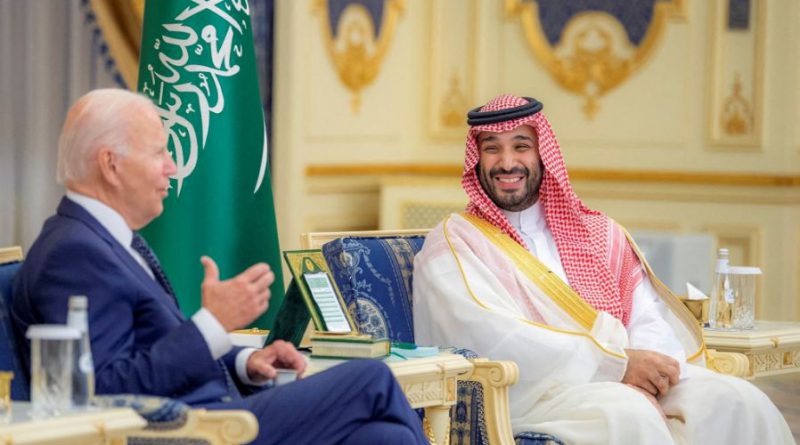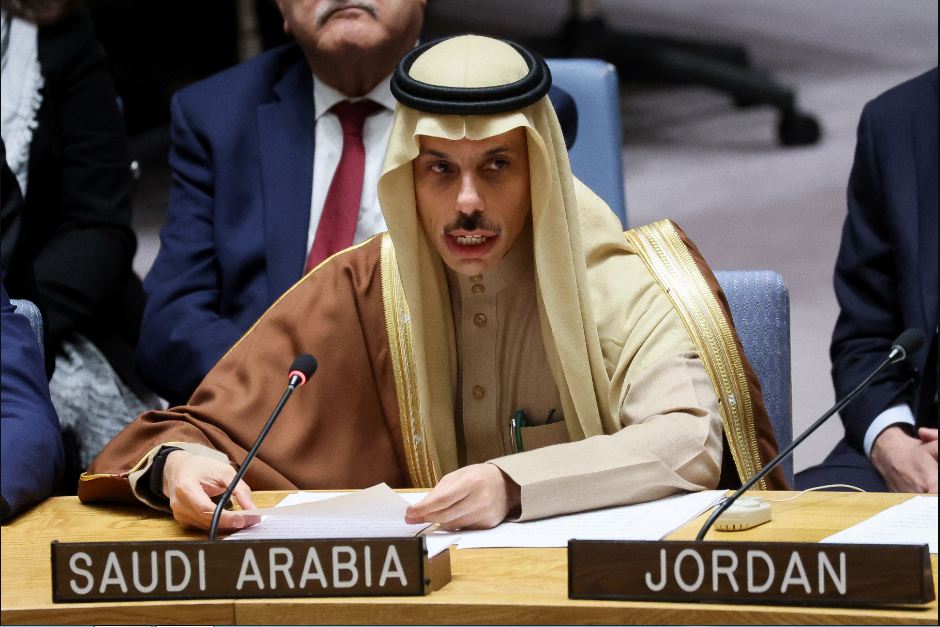Saudi Arabia’s golf coup highlights Biden’s human rights bind
Riyadh/Washington (Reuters) – When Saudi Arabia’s Public Investment Fund (PIF) signed a deal this week to merge with North America’s top body in charge of professional golf, it signaled for some the completion of a U.S.-aided rehabilitation of Crown Prince Mohammed bin Salman, five years after the murder of journalist Jamal Khashoggi that U.S. spy agencies believe he authorized.
The deal – a three-way merger of U.S.-based PGA Tour, DP World Tour and the rival PIF-backed LIV circuit – was announced just as Washington’s top diplomat Antony Blinken landed in the kingdom.
President Joe Biden had vowed to make the de facto Saudi ruler, known as MbS, “a pariah” after Khashoggi’s killing, which the crown prince has denied ordering, but nearly a year ago shared a fist bump with the 37-year-old during a visit to Jeddah. Riyadh is a major recipient of U.S. military sales.
U.S. officials have largely refrained from commenting on the golf deal, but say Washington and Riyadh have a complex relationship that touches on issues ranging from regional security and energy to human rights.
Concluding his visit on Thursday, Secretary of State Blinken told reporters he raised human rights issues with Saudi officials and “made clear that progress on human rights strengthens our relationship.”
“Human rights are always on the agenda of the United States – that’s who we are,” he said during a news conference.
But some rights advocates argue the golf deal shows the administration has chosen geopolitics over human rights.
“To me, the biggest takeaway is the PGA would have never done this if Biden hadn’t have gone to Jeddah and rehabilitated MbS,” said Seth Binder, director of advocacy at the Project on Middle East Democracy.
“Biden made it OK for the whole world, especially the business community, to not worry about re-engaging with MbS.”
A senior Biden administration official, who spoke on condition of anonymity, said U.S. efforts on domestic Saudi human rights issues were better tackled in private conversations with Saudi officials, declining to talk about specific cases.
The official said the U.S. had made significant progress with Saudi Arabia on a range of issues since Biden’s visit, including a truce in the war in Yemen. The benefits of that truce, which expired in October, remain in place “thanks to quiet, persistent, very effective diplomacy, not by being loud and beating a drum,” the official said.
“There’s a place for public diplomacy and there’s a place for effective behind-the-scenes diplomacy, and we very much believe in behind-the-scenes diplomacy,” the official said.
A PGA Tour spokesperson did not respond to a request for comment.
Clashing Priorities
The crown prince has launched an ambitious program to modernize the kingdom and reduce its dependence on oil revenue but his government has at the same time cracked down on its critics, including some U.S. citizens.
New York-based Human Rights Watch (HRW) says scores of human rights activists and dissidents are in prison or on trial in Saudi Arabia and that the repression “spiked” following Biden’s visit last year.
In response to a question about the kingdom’s human rights record, Saudi Foreign Minister Prince Faisal bin Farhan told reporters: “We are always open to having a dialogue with our friends, but we don’t respond to pressure. When we do anything, we do it in our own interests.”
Even before the golf announcement, human rights concerns were competing with pressing U.S. national security concerns.
Blinken carried with him a list of urgent matters to raise with the Saudis, including resisting overtures from China, which has been trying to make diplomatic inroads in the Middle East, countering Iran’s nuclear weapons program, and persuading Riyadh to establish diplomatic ties with Israel.
Securing help from the Saudis to avoid another spike in oil prices was also on the agenda.
Oil exports were one reason for Biden’s meeting MbS last year, which came as the administration worried inflation would dent the Democratic Party’s chances in the U.S. midterm elections. Riyadh angered Washington just three months later when the OPEC+ group, which includes Russia, cut oil production ahead of the elections.
HRW’s Washington Director Sarah Yager said with the U.S. “courting” Saudi Arabia aggressively, Riyadh is getting the cooperation with the United States that it wants without having to make human rights reforms.
“The Saudis are super transactional and I don’t know what the U.S. has put on the table to get human rights reforms, aside from asking for them,” said Yager. “The Saudis can just kind of shrug.”
Detained Americans
U.S. citizens and residents with family members detained in Saudi Arabia called on Blinken in a letter on Tuesday to press for their immediate release. The list included prominent cleric Salman al-Odah, children of former spy chief Saad al-Jabri, human rights defender Mohammed al-Qahtani and aid worker Abdulrahman al-Sadhan.
Blinken said he had raised specific cases during his visit but declined to go into details.
In March, Saudi authorities released a U.S. citizen jailed for 19 years for posting criticism of the government on Twitter but banned him from traveling abroad. Saad Ibrahim Almadi, 72, had posted the tweets in question when he was in Florida.
The administration has been pushing Riyadh to lift his travel ban, a source familiar with the situation said.
Tess McEnery, a former Biden administration national security council official, said playing down human rights considerations for short-term security, energy or economic benefits would hurt U.S. security, as well as the rights of Saudis, in the long run.
“Ultimately … five, 10, 15 years from now we will see the negative national and international security implications of appeasement of authoritarian allies like Saudi,” she said.



